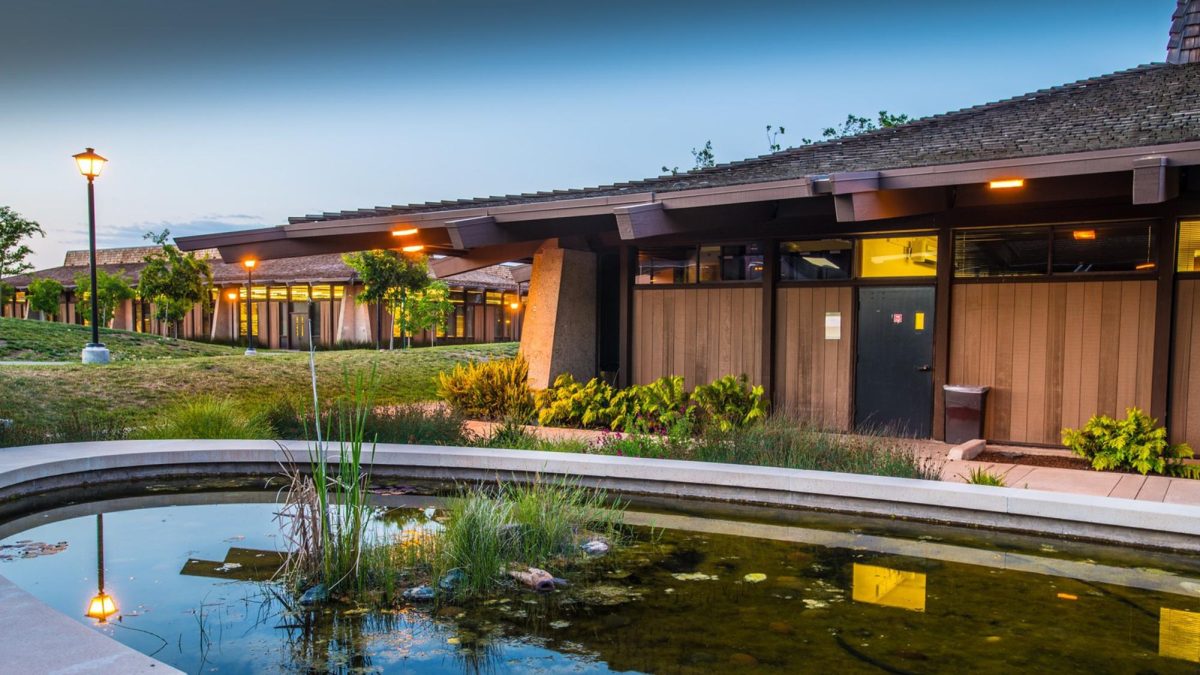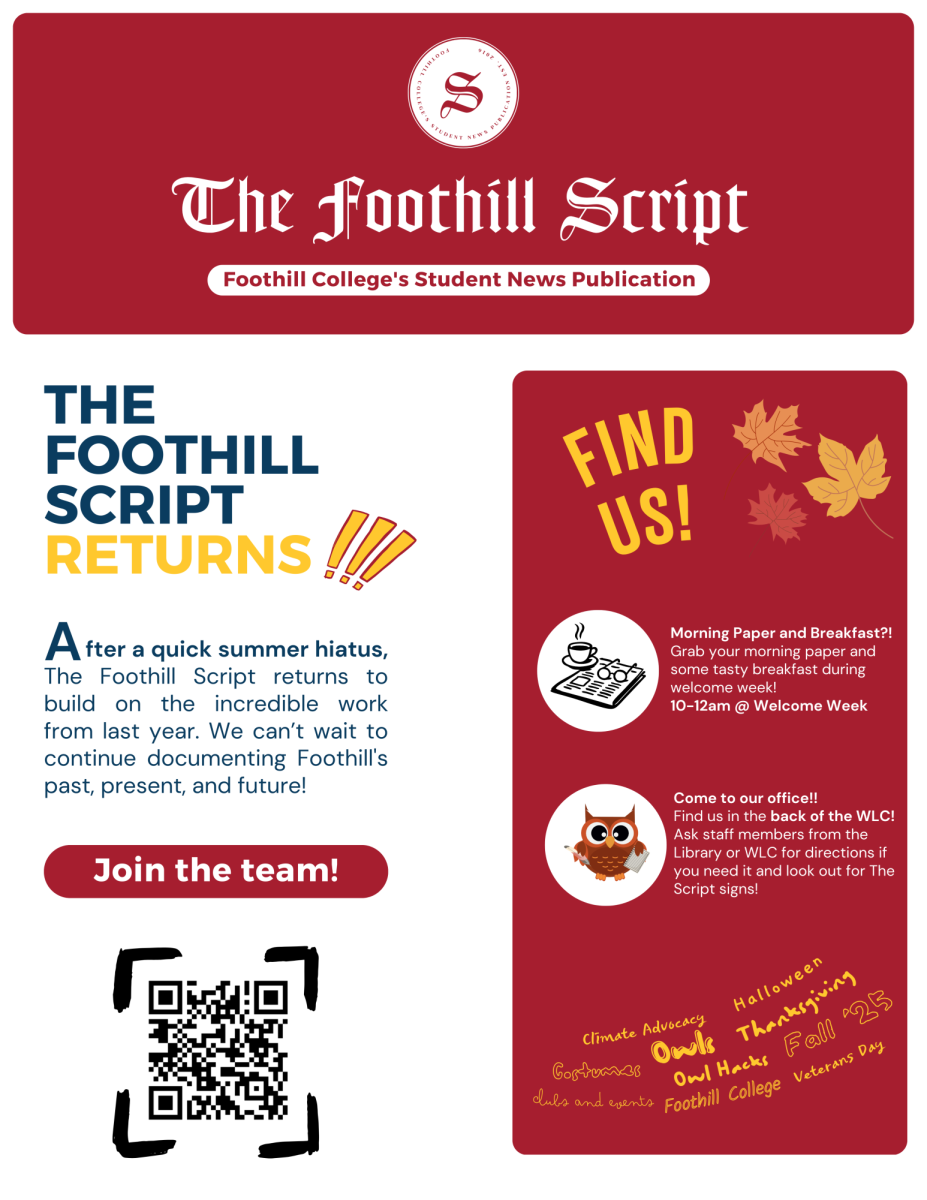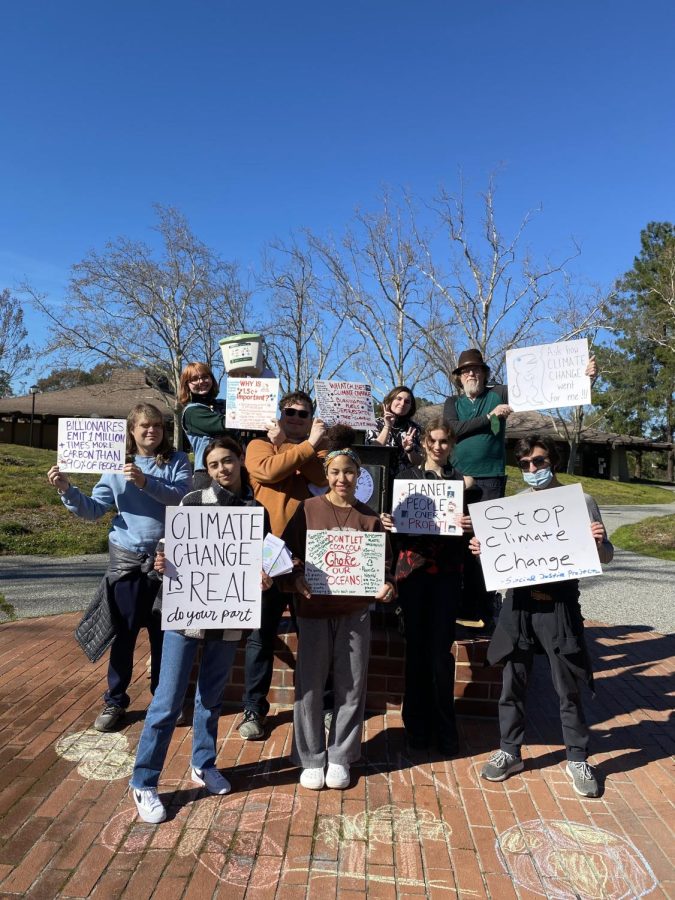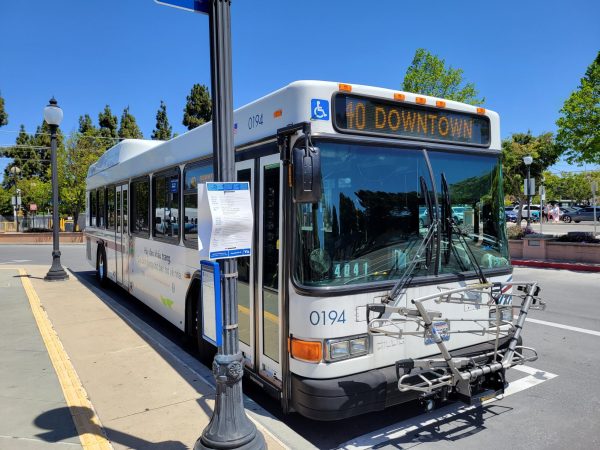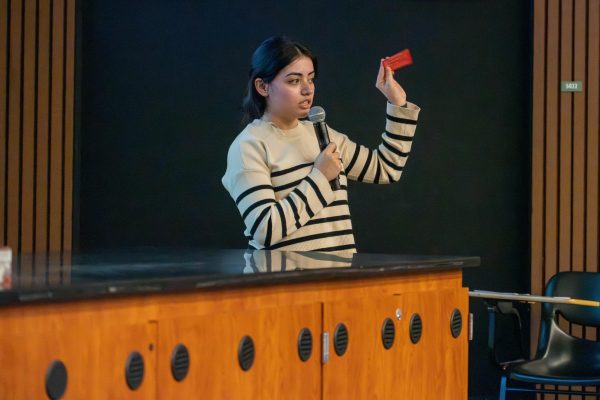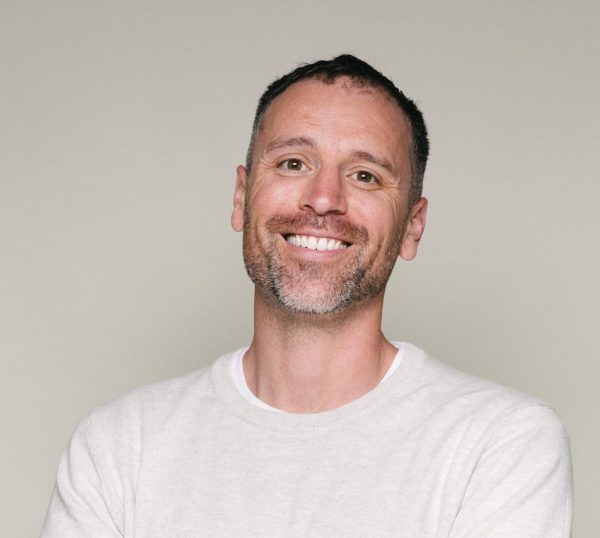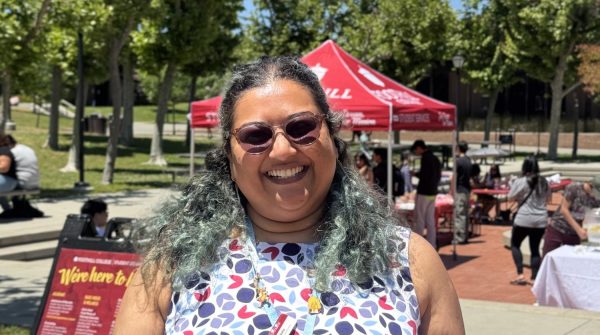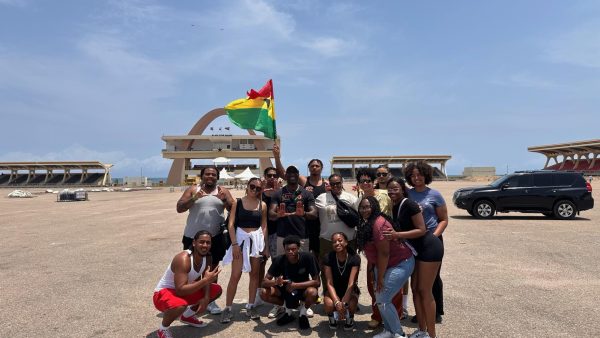Social Justice Club demands Climate Justice
FOOTHILL – The Social Justice Club on February 6, convened at the Cesar Chavez Podium to demand climate justice and accountability from our leaders. This comes after staging a successful event during the Fall quarter to promote knowledge and raise awareness about climate change among members of the Foothill College community.
The recent protest aimed to address the lack of change, action, care, and the lack of environmental-friendly policies and resources. “We acknowledge the small steps that have been made since our last event, but there has been no significant progress made since COP27,” Jason Morley, a club member, explained. According to a report from the United Nations Environmental Program, there was “no credible pathway” to limiting global temperature increase to 1.5 degrees Celsius and that mitigation efforts since COP26 have been “woefully inadequate.”
The 2022 United Nations Climate Change Conference (COP27) was held in Egypt from November 6-18, 2022, and was attended by 190 countries. Mitigation, adaption, finance, and collaboration were its four key themes. There have been promising developments at the global level, but members of the club remained skeptical, especially in terms of the feasible changes that can be made to address the needs of smaller communities.
“While these seem or sound complicated, there are a lot of ways that people can contribute, especially in our campus,” Madi Gubser, the club’s Vice President said. “There are students who care and this shows that we actually can do something, and knowing these things stops the feeling of hopelessness.”
Currently, the club’s main initiative is campaigning for more sustainable practices by creating a compost bin because there is not one in the campus before their efforts. This is strategically placed in the BSS lounge where many students conduct their meetings and hang out. The composts are dumped through the horticulture department using an appropriate type of soil. According to Madi, composting is important because it reduces greenhouse gasses by not making food waste go to landfills.
Alisa Mack, one of the club’s co-presidents, is no stranger to how much food waste there is on campus. She says they are currently working on a Food Waste Project, wherein the goal is to use excess food that’s ordered for Foothill events to help people who have food insecurity and students who just need lunch.
Members of the club also alluded to sustainable and accessible modes of transportation as a priority that the college should consider. “We might say that this can be a matter of equity. We want better public transportation because students, especially those coming from afar, have no choice but to drive to school,” said Madi. “There should be more accessible bus routes, and electric shuttles if possible. What about students who just got here [in the US]? Or international students? Or those who don’t have driving permits yet?” Free bike rentals that can be used within the college is also an option that the club proposes.
Alisa raised the idea of electing a Vice President for Environment and Sustainability to keep the collective efforts and the momentum of such progress going. In line with this, she is campaigning for an adoption of an Associate Degree for Environmental Studies to encourage and empower students to do more even in their own little ways.
The Social Justice Club, having been around for a while, aims to bring the community together to bring justice to social issues. The club meets twice weekly, one in-person, and one online. If you are interested to join the club, you may join their discord server or contact [email protected]
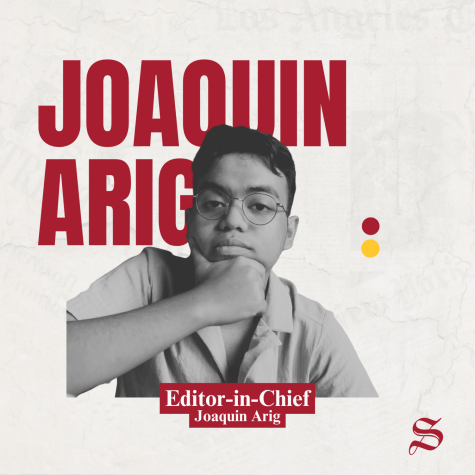
He was the Associate Editor-in-Chief of his previous school's student publication in the Philippines, and currently works at Stanford University's SNF (nano@stanford) facilities as a junior intern. Other than writing articles, Joaquin loves to write poetry and do graphic design.






